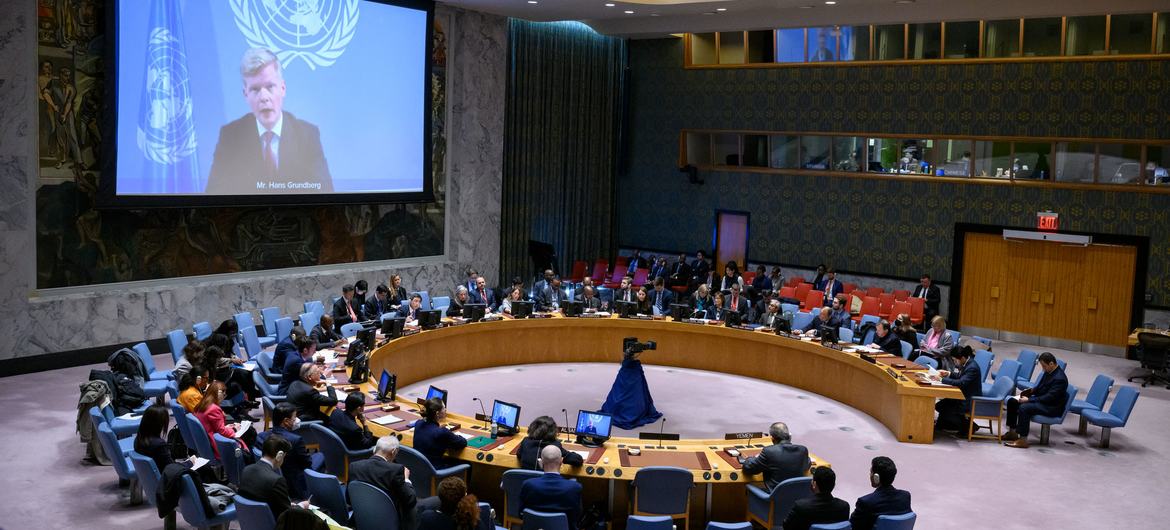
UN Special Coordinator for the Middle East Peace Process Tor Wennesland said on Tuesday that the current trajectory in the region is neither sustainable nor inevitable.
The holy month of Ramadan, which overlapped with Christian Easter and Jewish Passover, witnessed shocking incidents of violence at the Holy Sites in Jerusalem and tensions across the occupied Palestinian territory and in Israel, with a brief escalation spilling over into the region although the holy period was mostly calm, he told the UN Security Council in a briefing.
“While a wider-scale escalation was averted, with each de-escalation the stakes get higher and the tools at our disposal become fewer. The current trajectory is neither sustainable nor inevitable,” he said.
The parties, the region and the international community need to address the underlying political, security, economic and institutional challenges driving the conflict. There must be an end to the unilateral measures, provocations and incitement that enable violence and prevent progress toward resolving this conflict and ending the occupation, he said.
Wennesland expressed deep concern over the violence and inflammatory actions in the past weeks, particularly the violent confrontations inside al-Aqsa Mosque in East Jerusalem. He also condemned the indiscriminate launching of rockets toward Israeli population centers.
“I reiterate that acts of terror and targeting of civilians are abhorrent and must be condemned and rejected by all. All perpetrators of violence must be held accountable and swiftly brought to justice. Security forces must exercise maximum restraint and use lethal force only when strictly unavoidable to protect life. I am appalled that children continue to be the victims of violence. Children must never be the targets of violence, used or put in harm’s way,” he said.
He reiterated that all settlements are illegal under international law and are a substantial obstacle to peace.
Demolitions and seizures of Palestinian-owned property remain a serious concern, he said, calling on Israeli authorities to end the displacement and eviction of Palestinians and to approve additional plans that would enable Palestinians to build legally and address their development needs.
Amidst the deteriorating situation on the ground, the Palestinian Authority continues to face significant fiscal and institutional challenges. At the same time, the UN agencies, funds and programs that provide support to the Palestinian people are facing significant funding shortfalls, notably the World Food Programme and the UN agency for Palestine refugees, impacting basic service delivery, said Wennesland.
Efforts are needed by the parties and the international community to strengthen Palestinian institutions, improve governance and shore up the fiscal health of the Palestinian Authority. These steps must be part of a broader political effort that addresses the underlying drivers of the conflict, provides the space and access needed for the Palestinian economy to grow and encourages the parties to update their economic and administrative relationship, he said.
Addressing these immediate challenges can also provide much-needed momentum toward re-establishing a political horizon toward achieving a two-state solution, said Wennesland.
“I urge Israelis, Palestinians, regional states and the broader international community to show leadership, re-engage and work collectively in the pursuit of peace with the aim of ending the occupation and resolving the conflict in line with international law, relevant United Nations resolutions and previous agreements, in pursuit of the vision of two states — Israel and an independent, democratic, contiguous, viable and sovereign Palestine — living side-by-side in peace and security within secure and recognized borders on the basis of the pre-1967 lines, with Jerusalem as the capital of both states,” he said.





